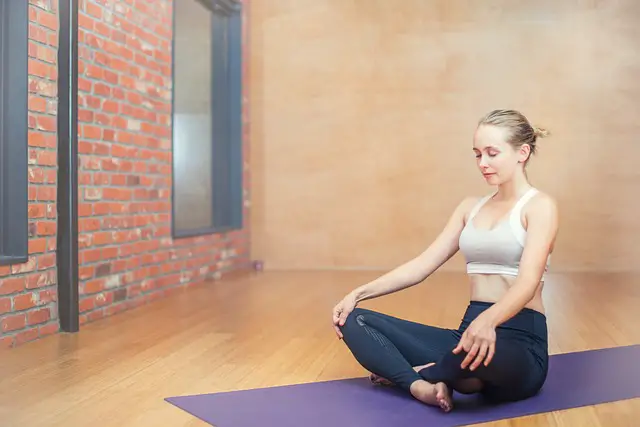In today’s fast-paced and stressful world, many people struggle with maintaining their mental health.
Anxiety, depression, and stress-related disorders are becoming more prevalent, leading individuals to search for effective coping strategies.
One such strategy that has gained popularity is yoga. This ancient practice involves physical movements, breathing techniques, and meditation, and has been found to have numerous benefits for mental health.
In this blog post, we’ll explore the science behind yoga’s positive effects on mental health and how you can incorporate it into your daily routine.
Stress and Anxiety
Yoga is effective tool for reducing stress and anxiety. The practiced physical movements are designed to stretch and strengthen the body while calming the mind.
The deep breathing techniques used in yoga also help to reduce stress hormones such as cortisol, which can contribute to feelings of anxiety and tension.
Yoga has also been found to increase the production of gamma-aminobutyric acid (GABA), a neurotransmitter that helps to regulate anxiety.
Studies have found that practising yoga can lead to a significant reduction in symptoms of anxiety.
For example, a 2017 study published in the Journal of Evidence-Based Integrative Medicine found that a yoga intervention led to a significant decrease in anxiety and depression scores among participants.
Depression
Depression is a serious mental health condition that can have a significant impact on a person’s quality of life.
While yoga should not be used as a sole treatment for depression, it can be a helpful addition to other forms of therapy or medication.
Yoga has been found to improve mood and reduce symptoms of depression, possibly due to the release of endorphins during physical activity and the calming effects of meditation.
A 2017 study published in the Journal of Alternative and Complementary Medicine found that practising yoga led to a significant reduction in depression scores among participants.
Other studies have also found that yoga can help to improve self-esteem and reduce feelings of hopelessness, which are common in individuals with depression.
Post-Traumatic Stress Disorder (PTSD)
Post-traumatic stress disorder (PTSD) is a mental health condition that can develop after experiencing or witnessing a traumatic event.
Yoga is a helpful tool in managing symptoms of PTSD. The physical movements used in yoga can help to release tension in the body, while breathing techniques and meditation can help to calm the mind.
A 2017 study published in the Journal of Traumatic Stress found that a yoga intervention led to a significant reduction in PTSD symptoms among veterans.
Another study found that a 12-week yoga program led to a significant decrease in anxiety and depression scores among individuals with PTSD.
How to Incorporate Yoga into Your Daily Routine
If you’re interested in incorporating yoga into your daily routine, there are many different styles of yoga to choose from.
Some popular styles include Hatha, Vinyasa, and Restorative. Many yoga studios and community centres offer classes for beginners, and there are also many online ………resources available.
To get started with yoga, consider setting aside a specific time each day for your practice.
Even just a few minutes of yoga each day can have significant benefits for your mental health.
You can also try incorporating yoga into other activities, such as taking a walk or practising yoga in nature.
Conclusion
Yoga has been found to have numerous benefits for mental health, including reducing stress and anxiety, improving mood, and managing symptoms of PTSD and depression.
By incorporating yoga into your daily routine, you can improve your overall well-being and manage the challenges of daily life.
Whether you’re a beginner or an experienced practitioner, many different types of yoga can suit your needs and preferences.

